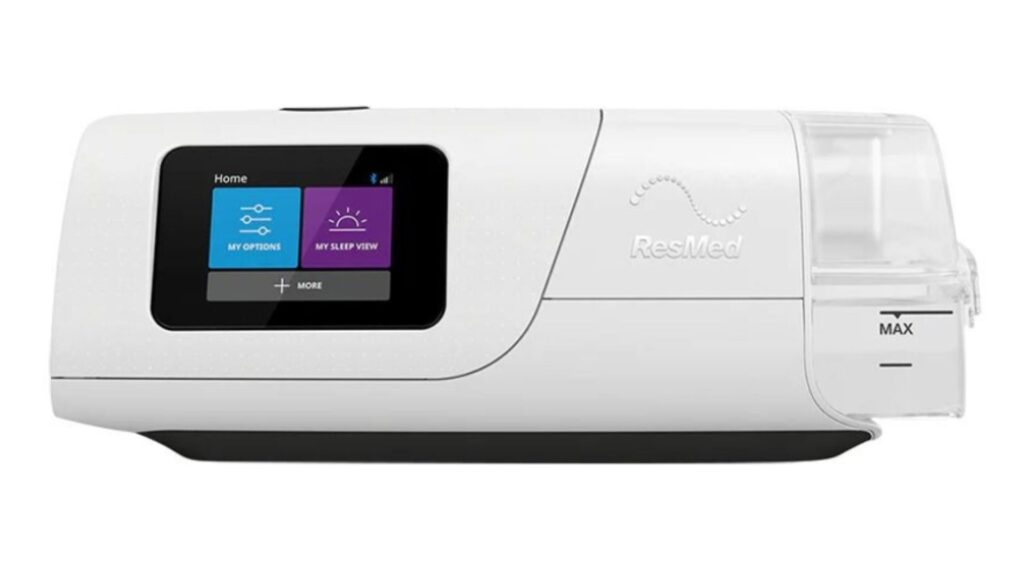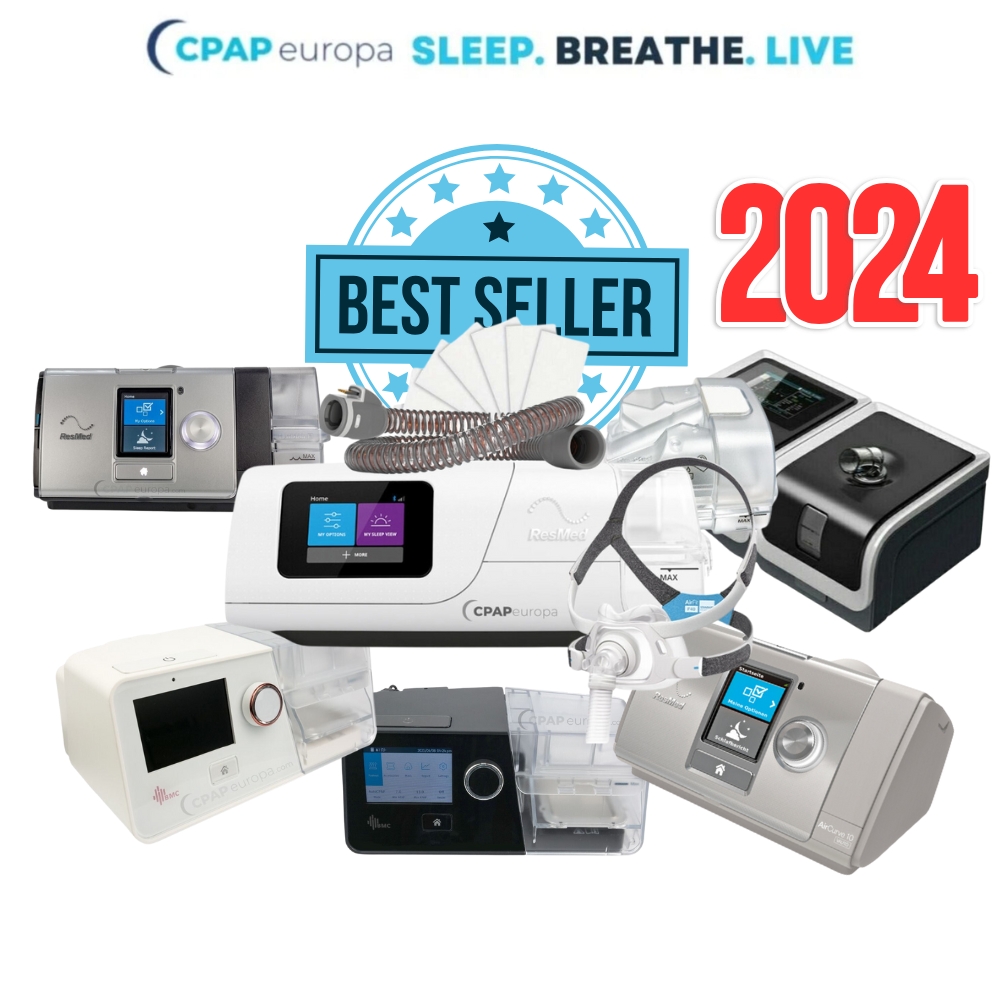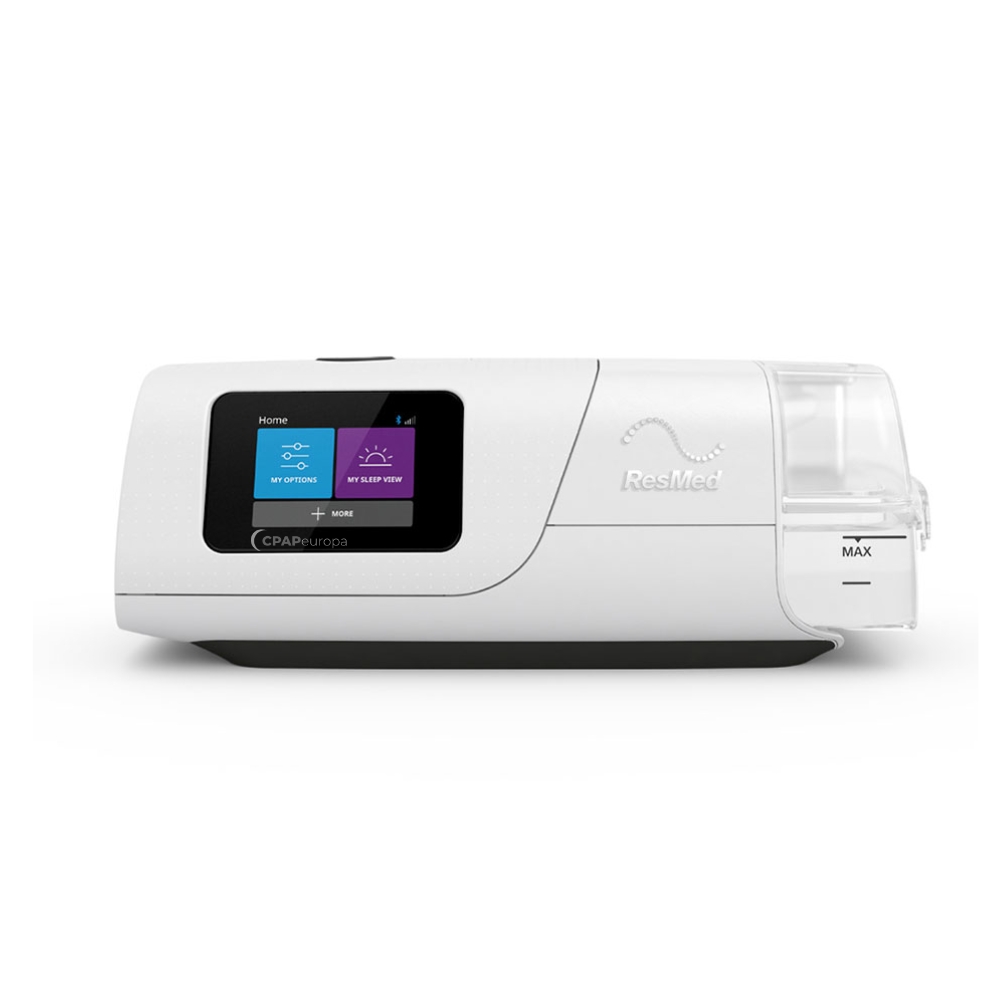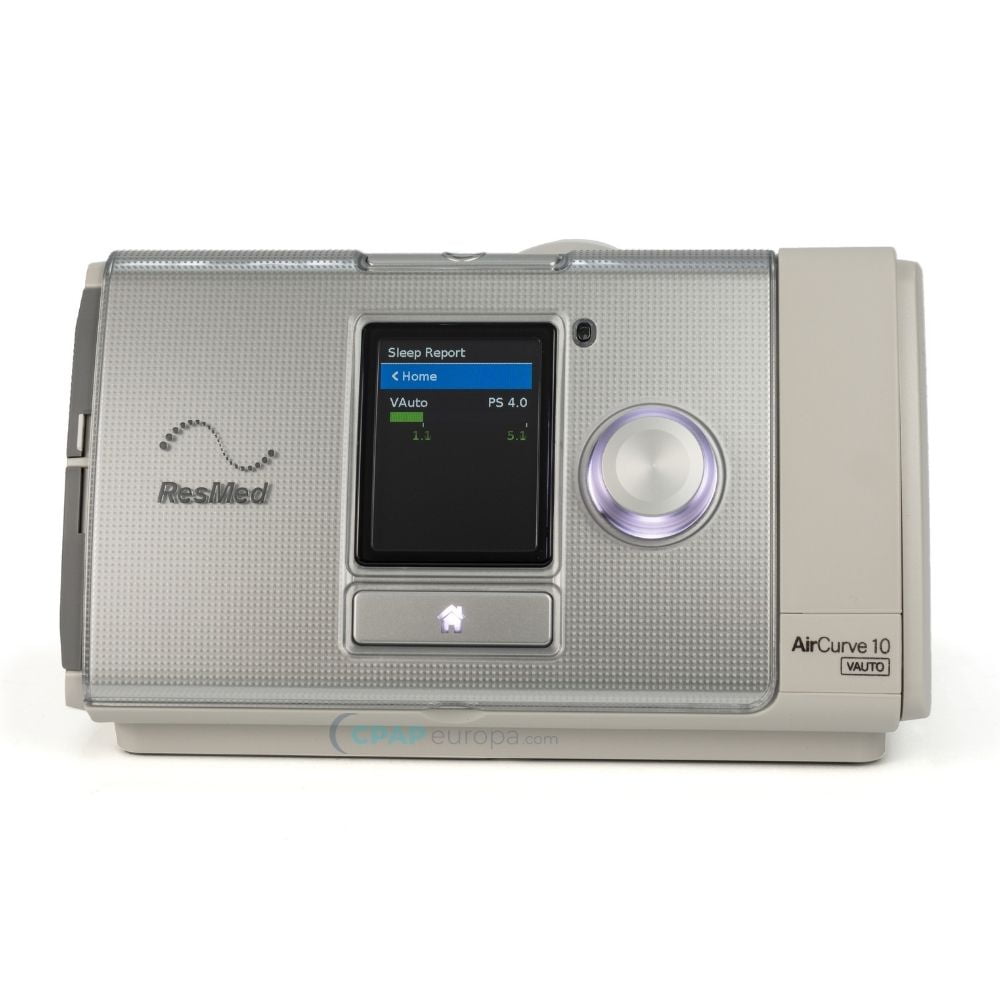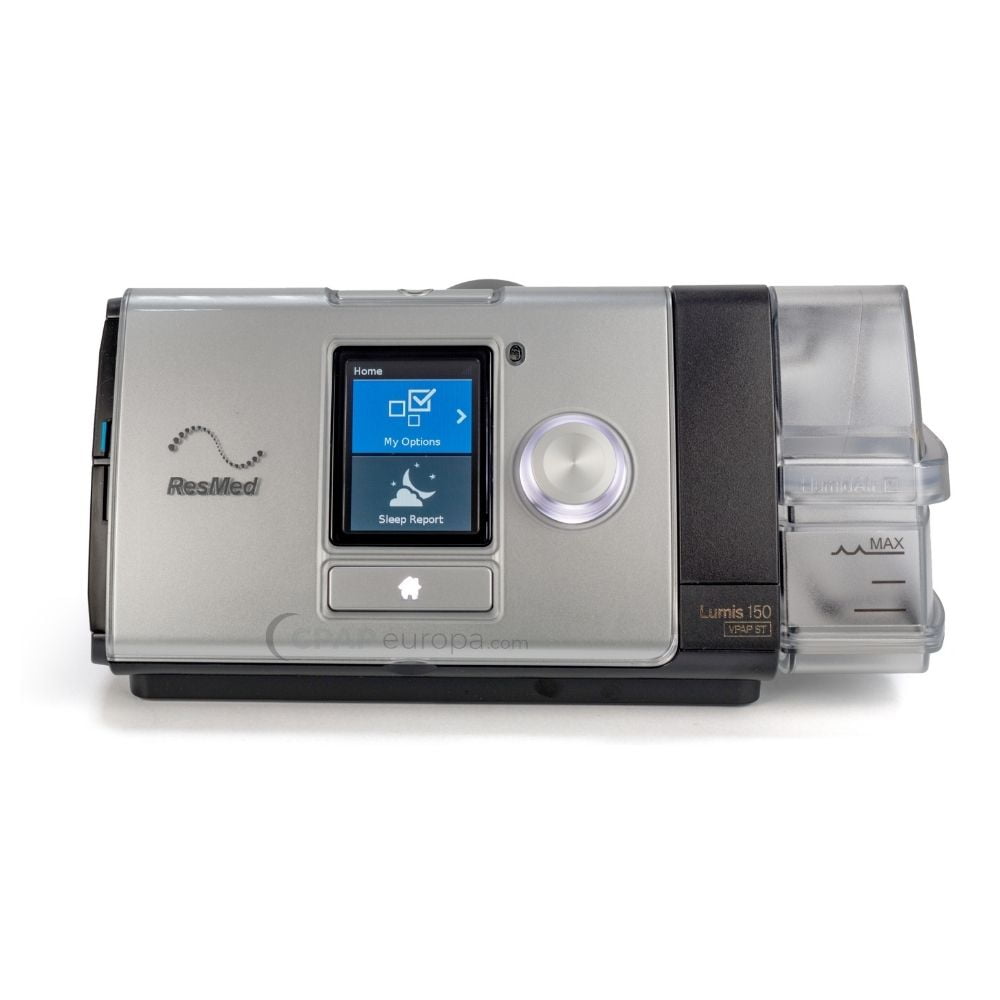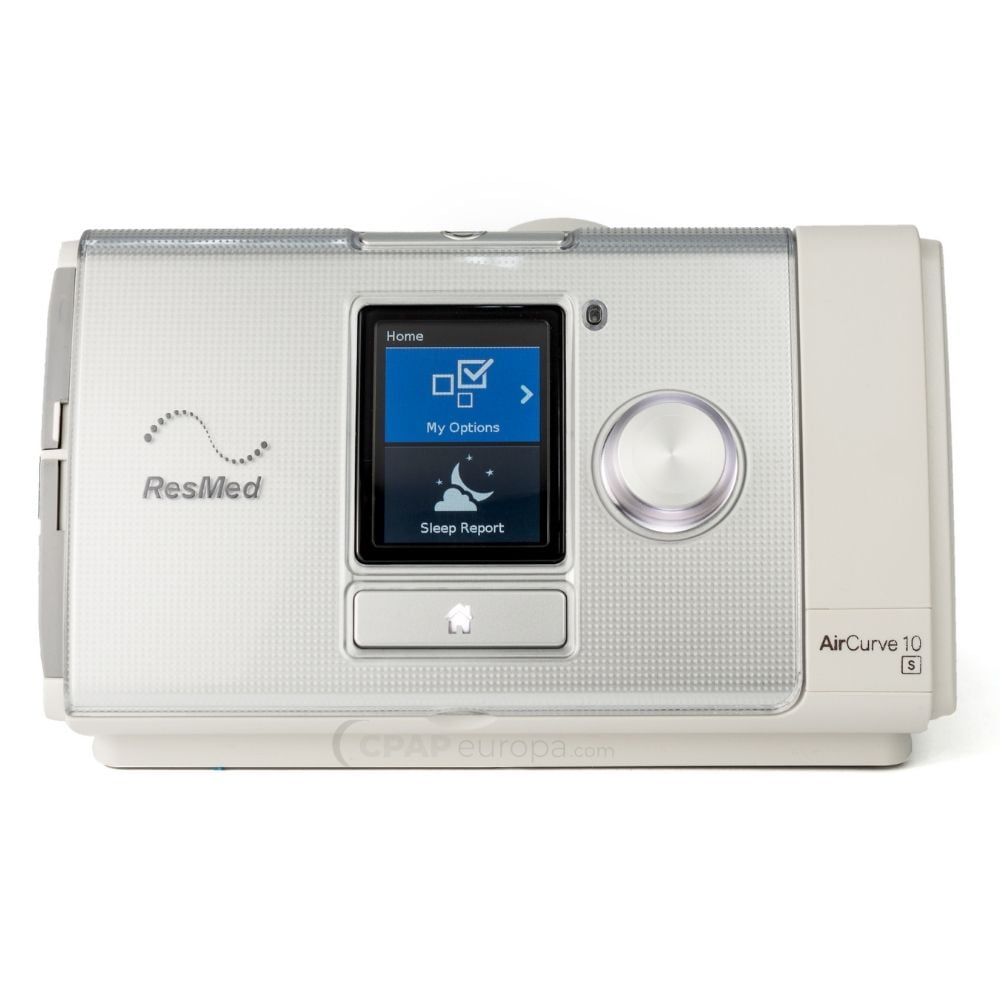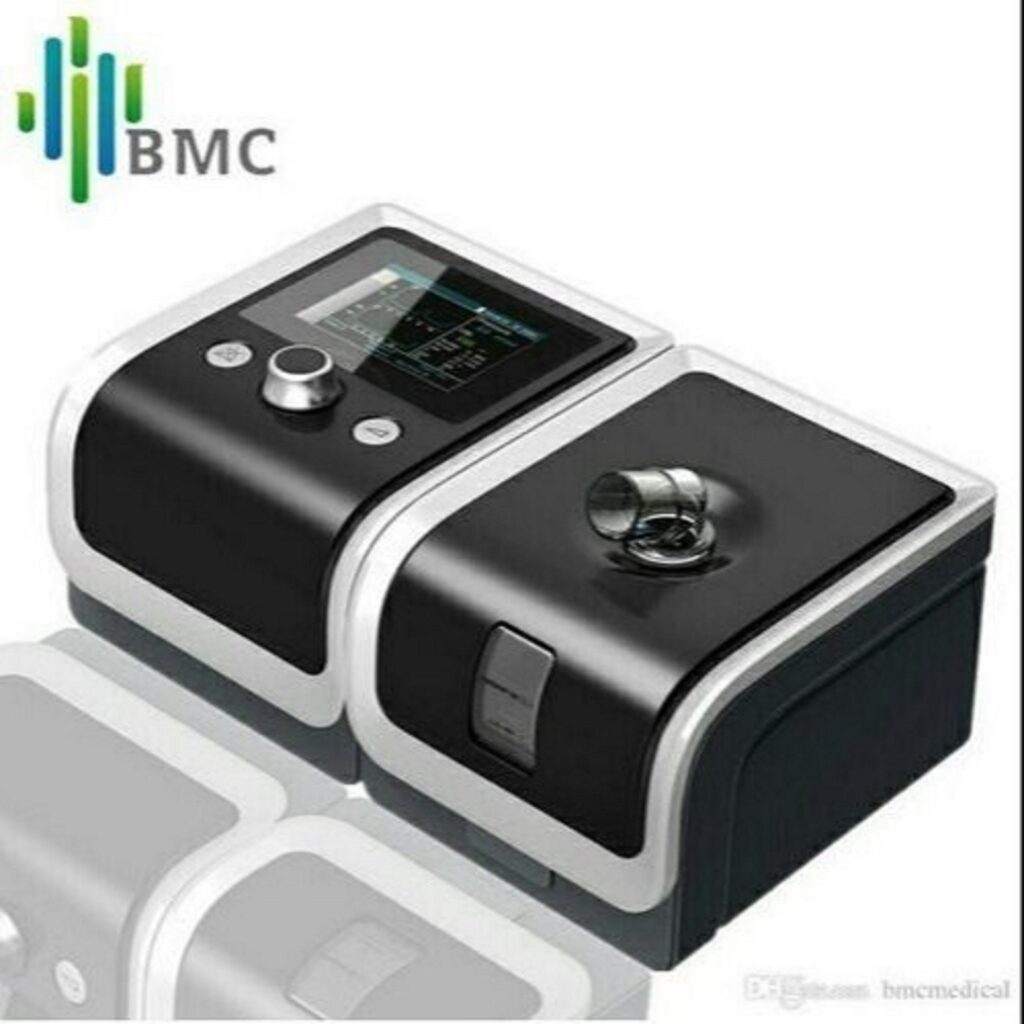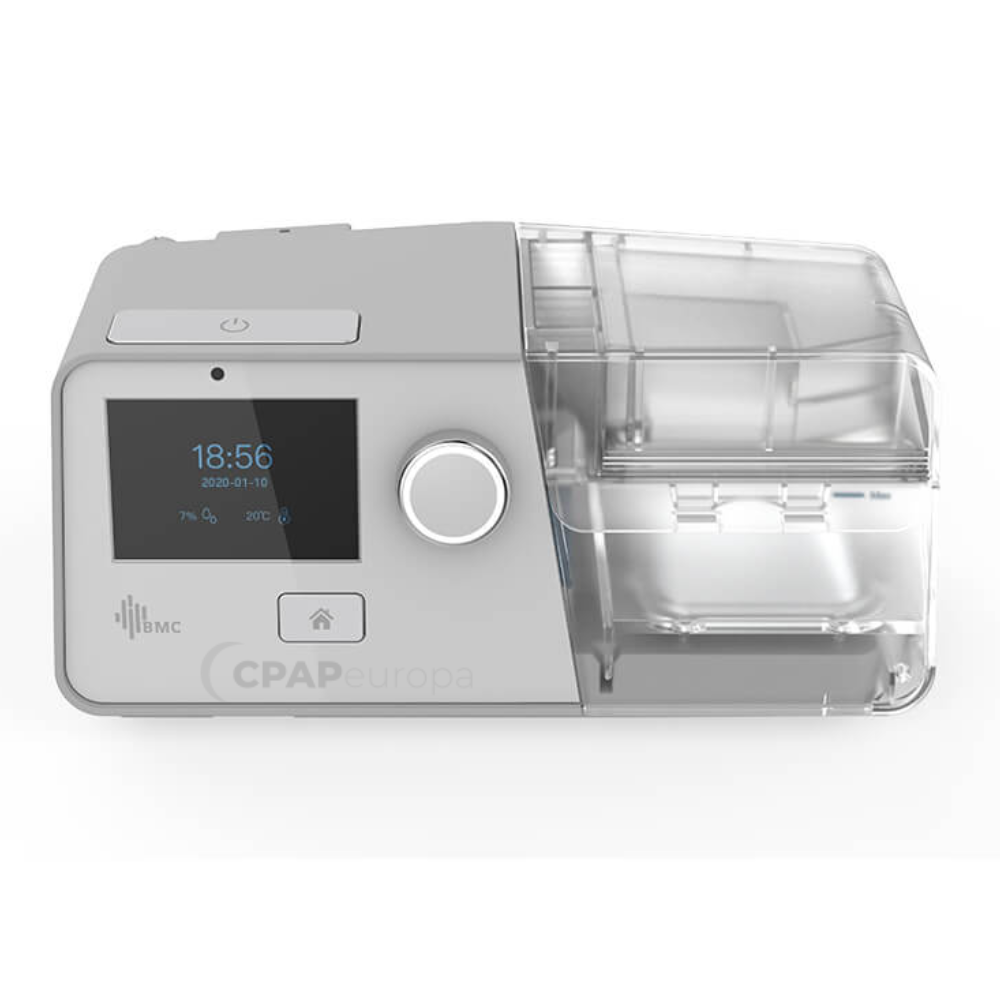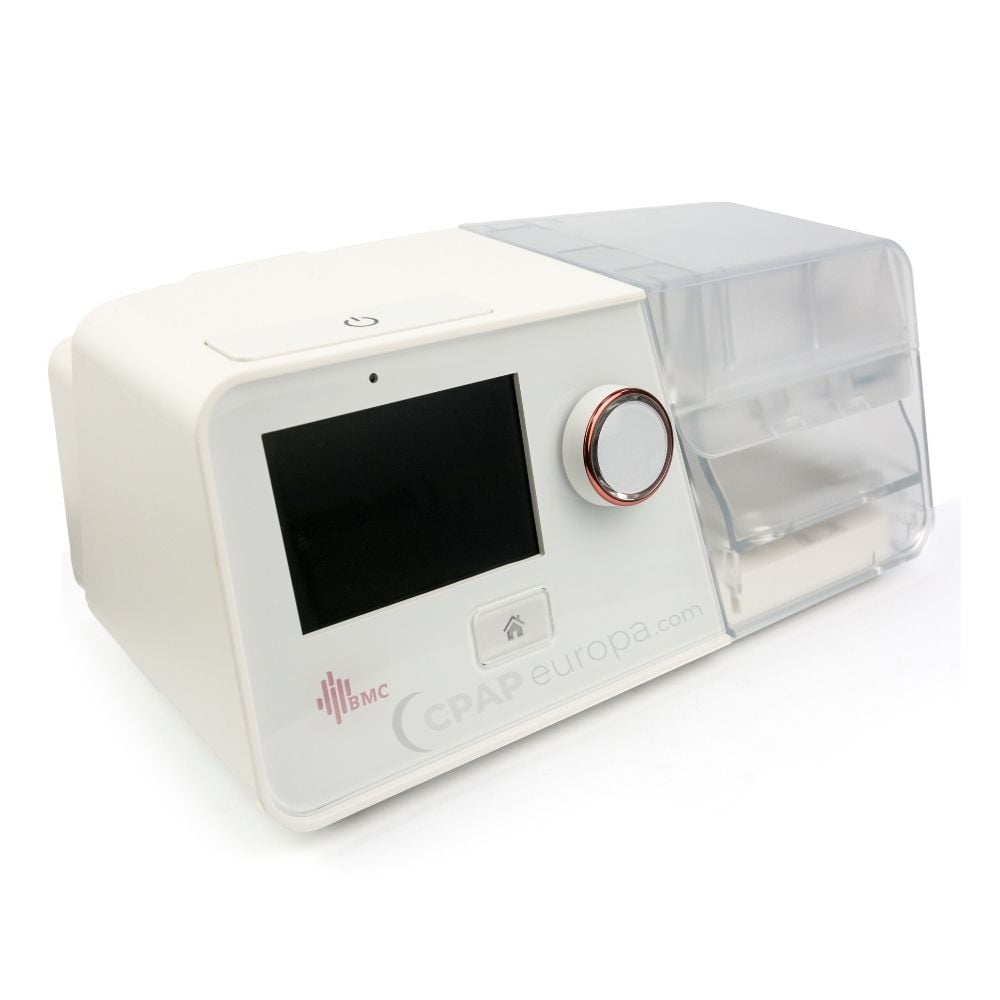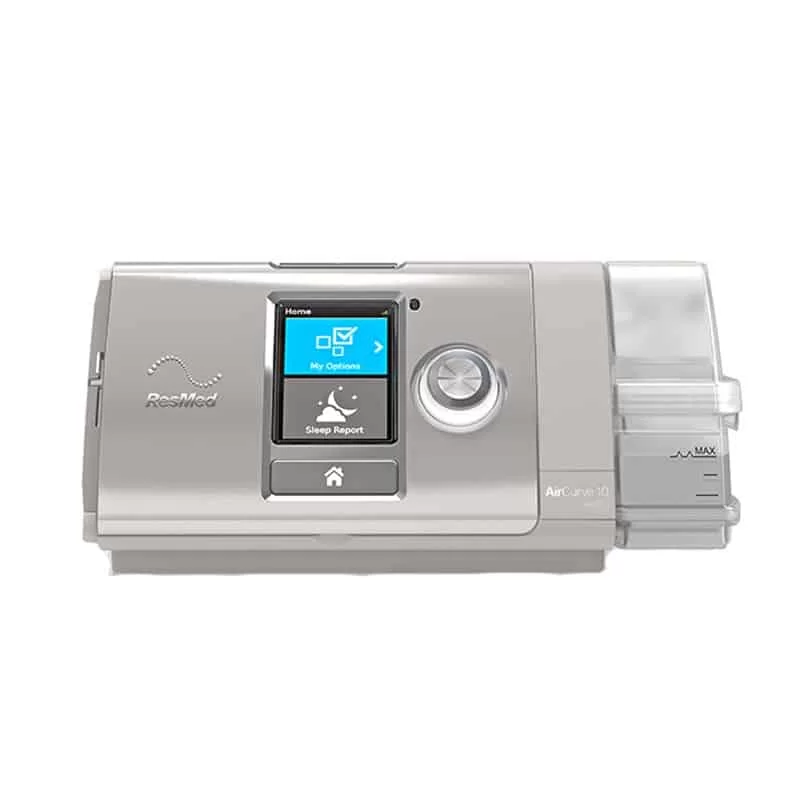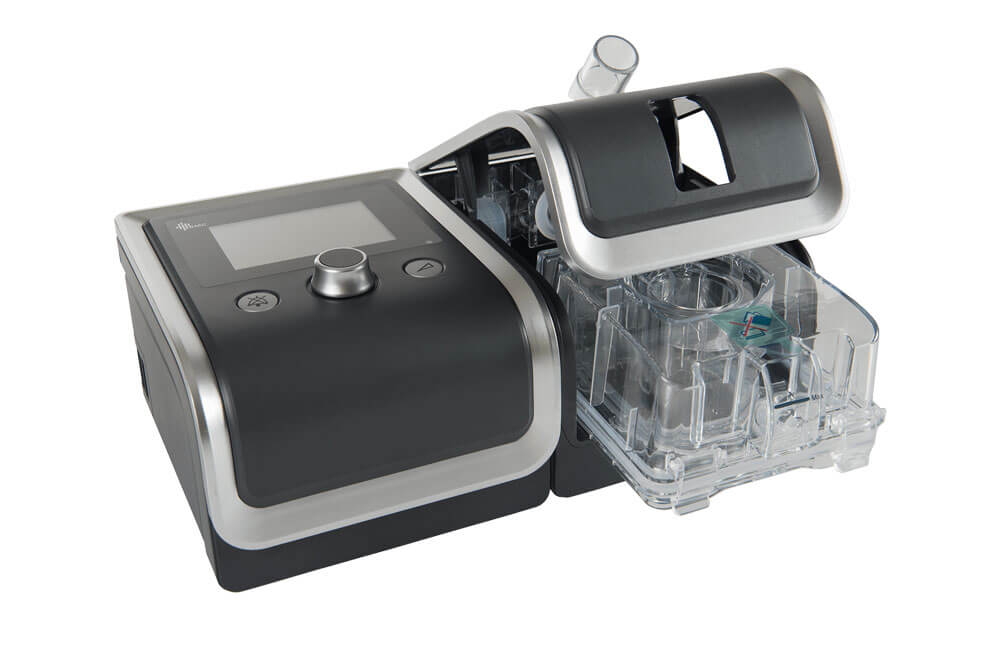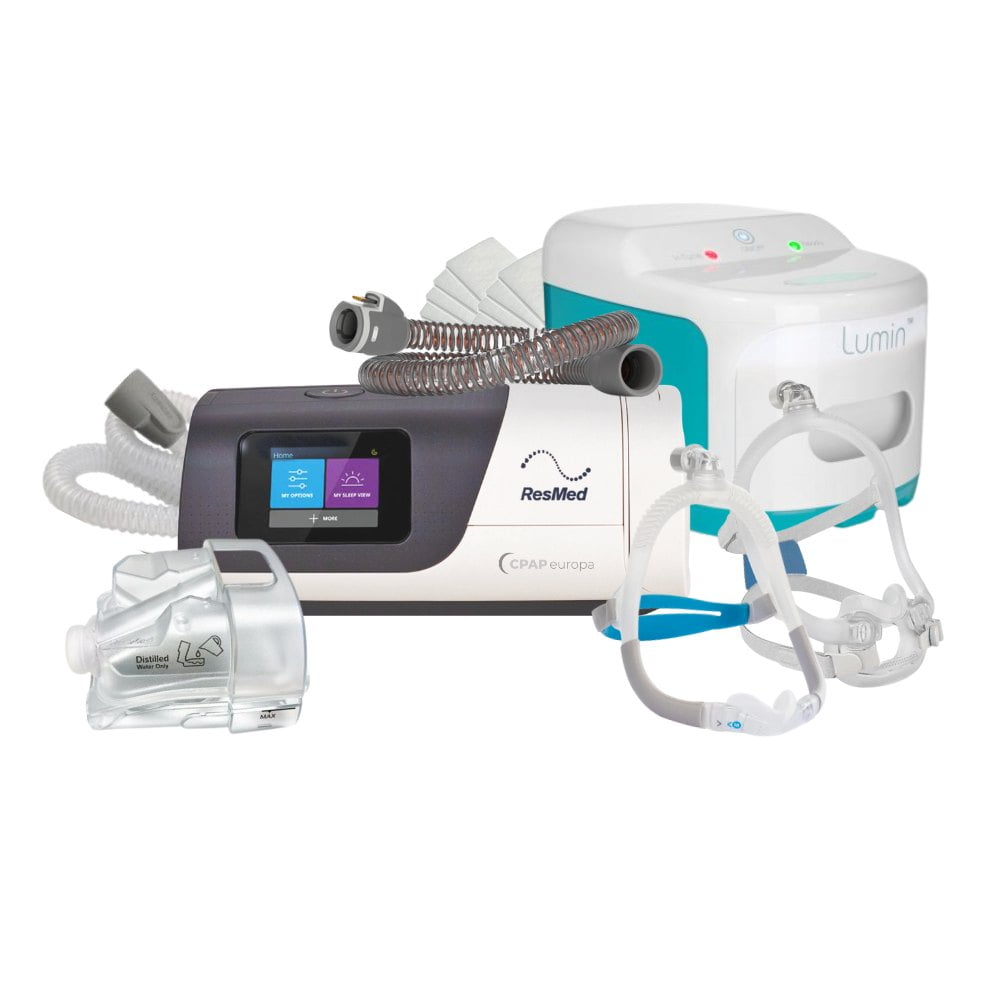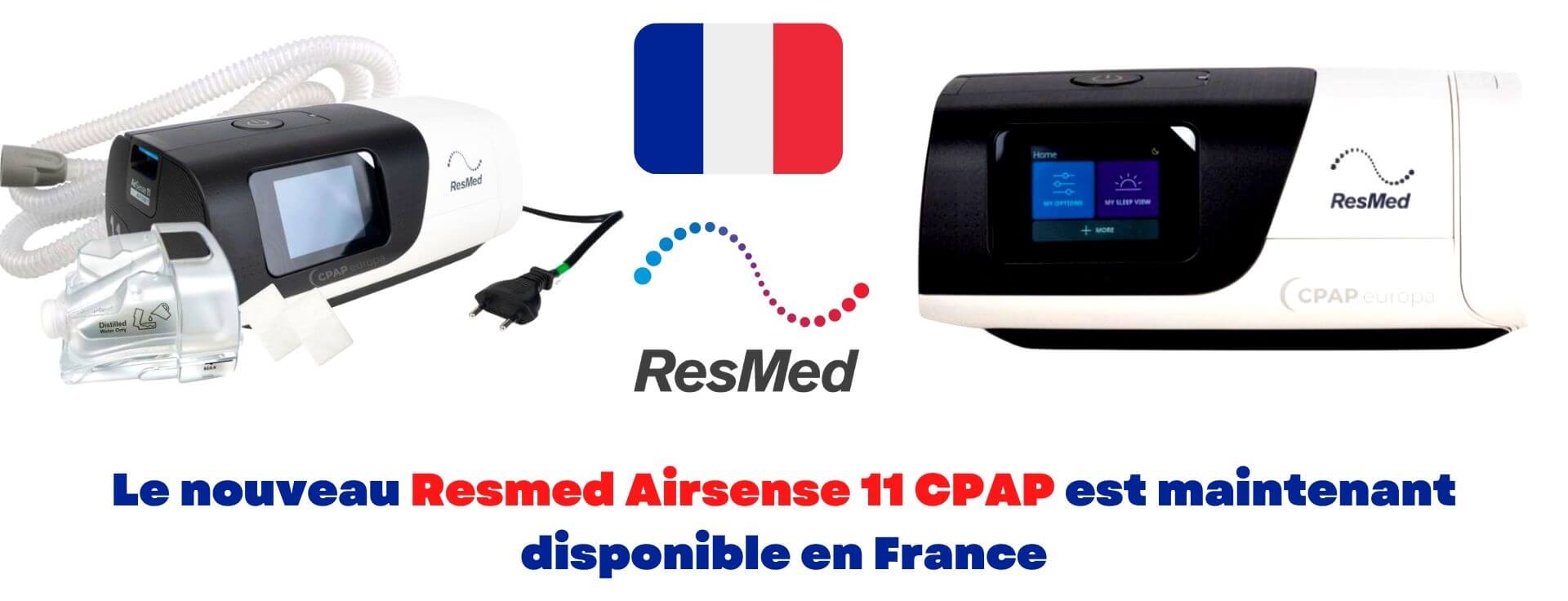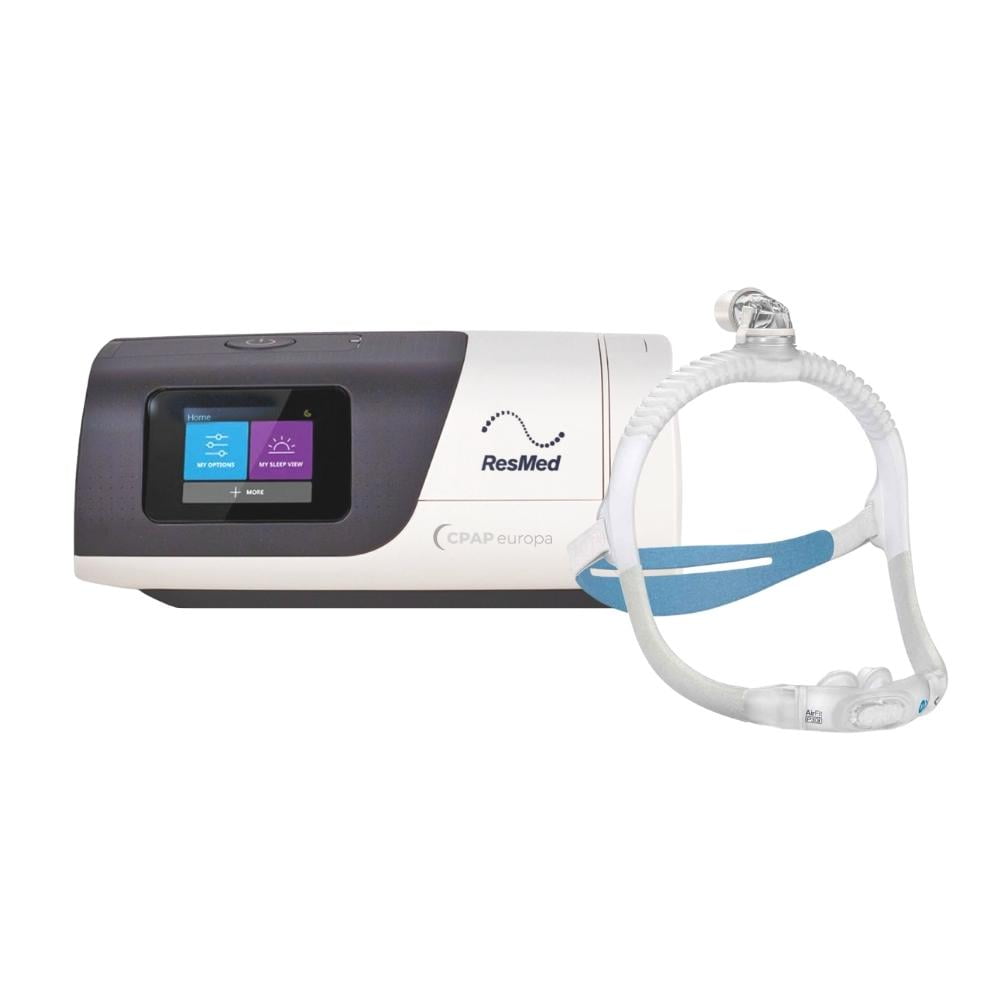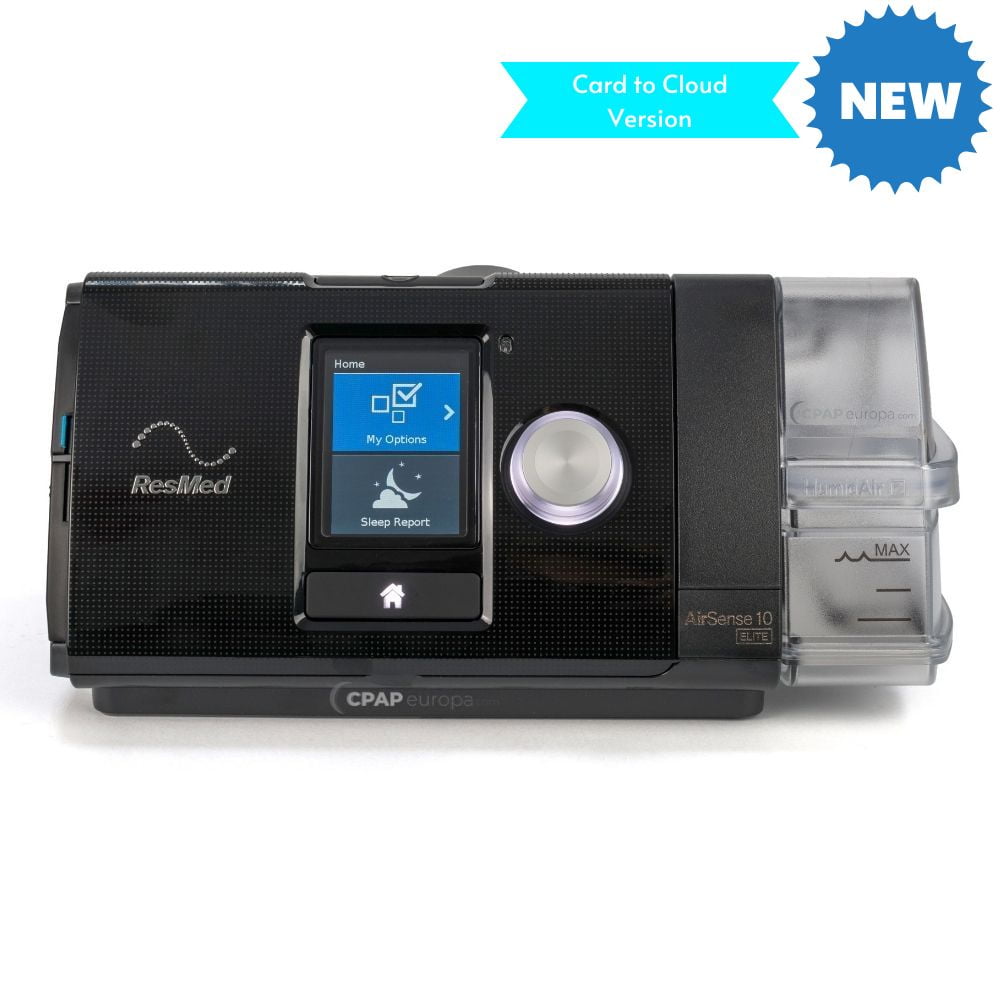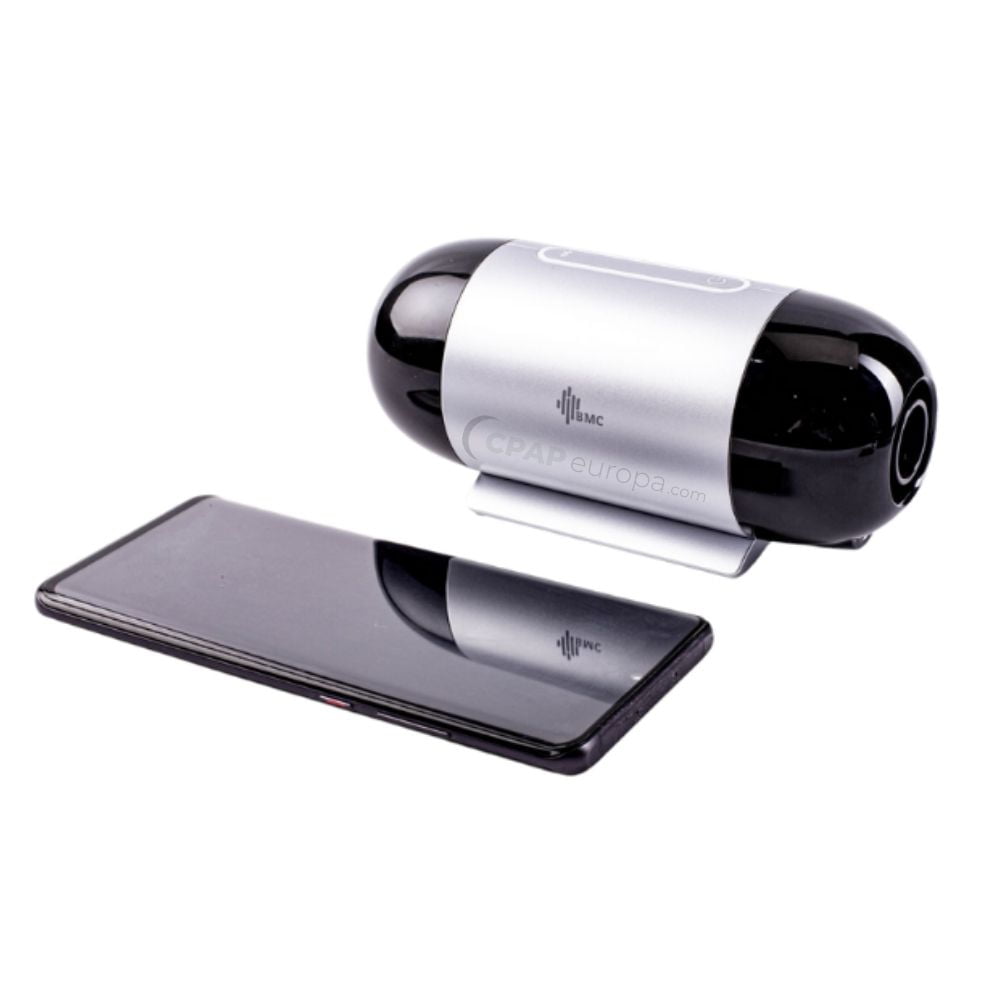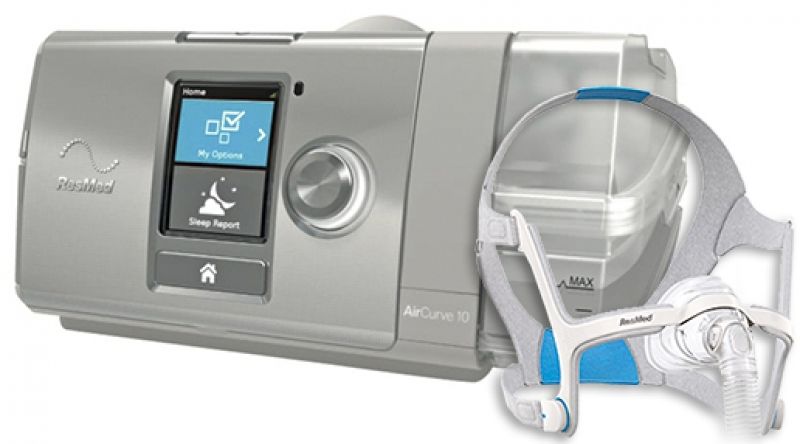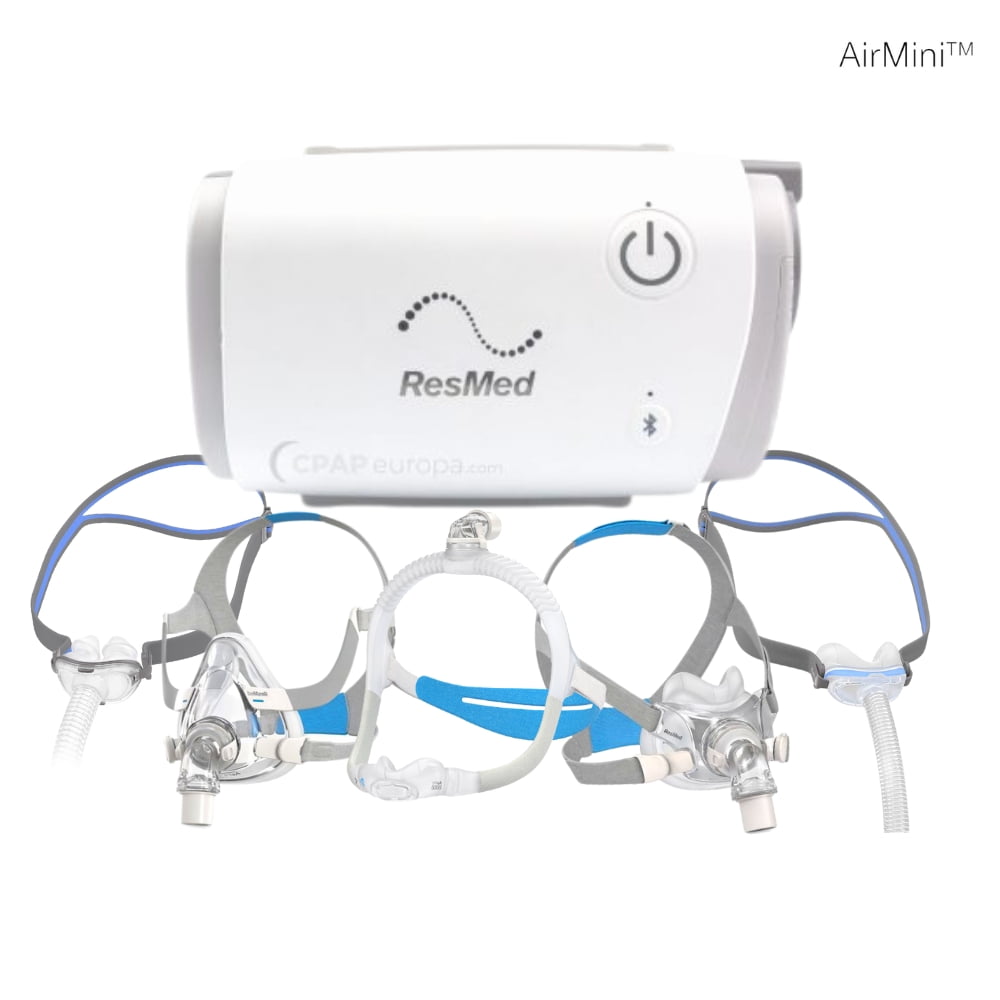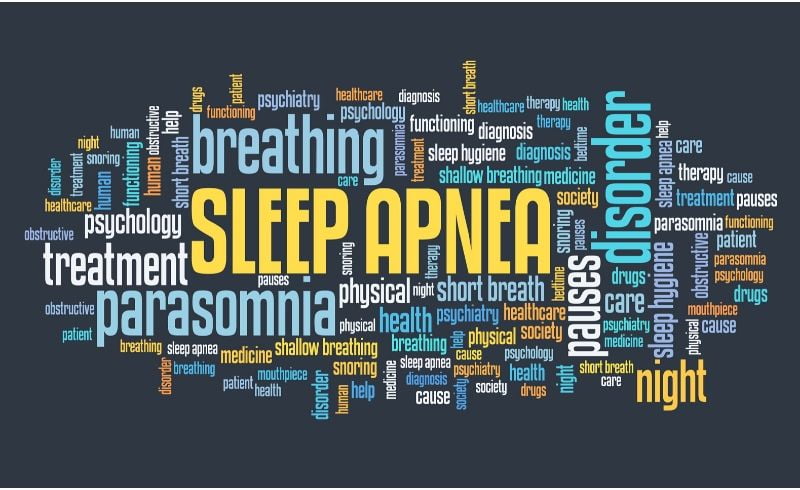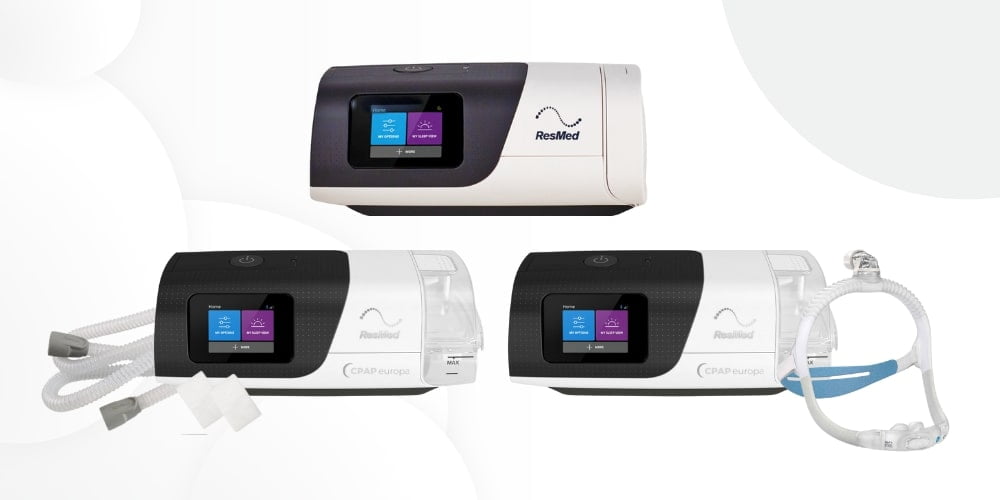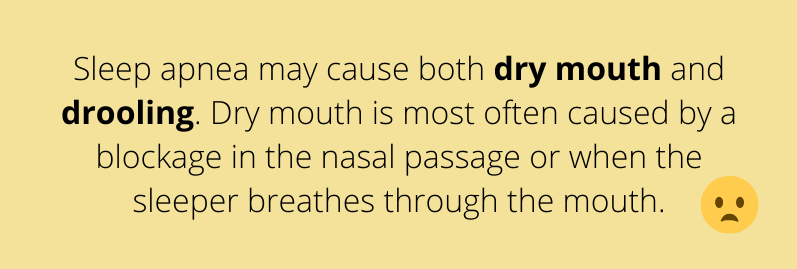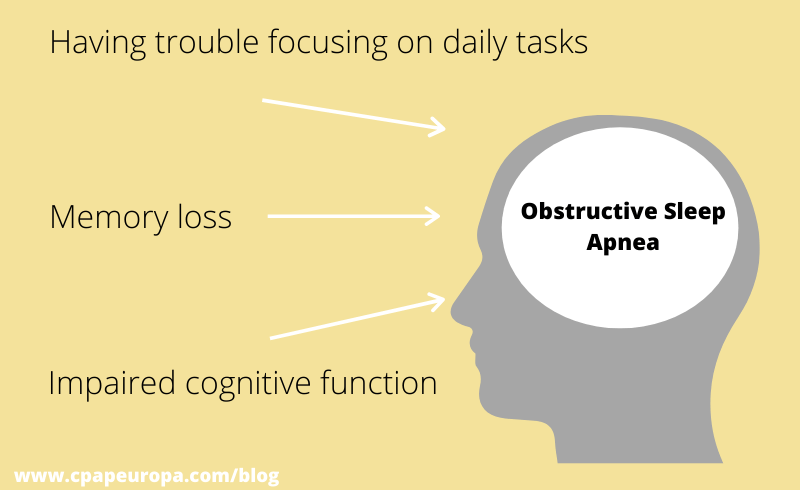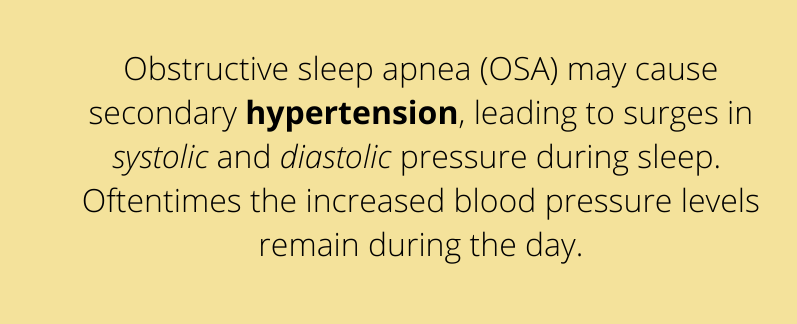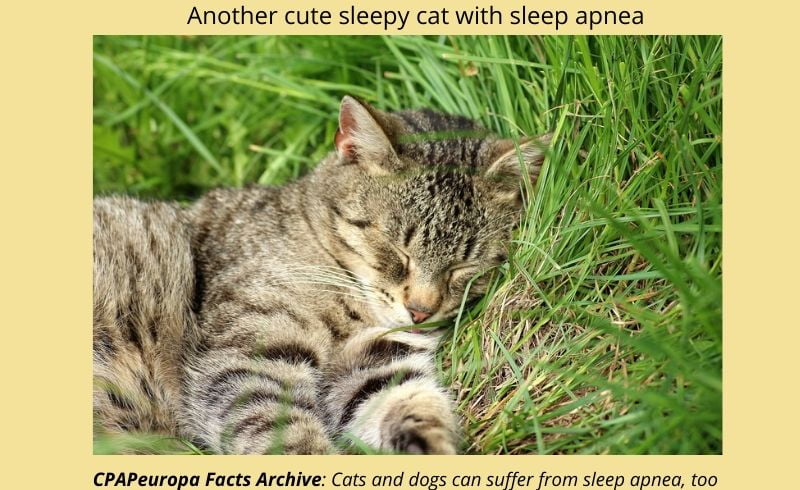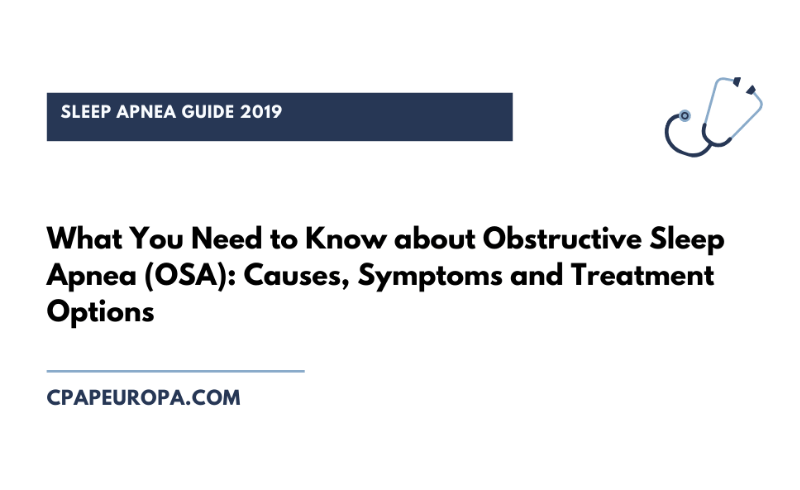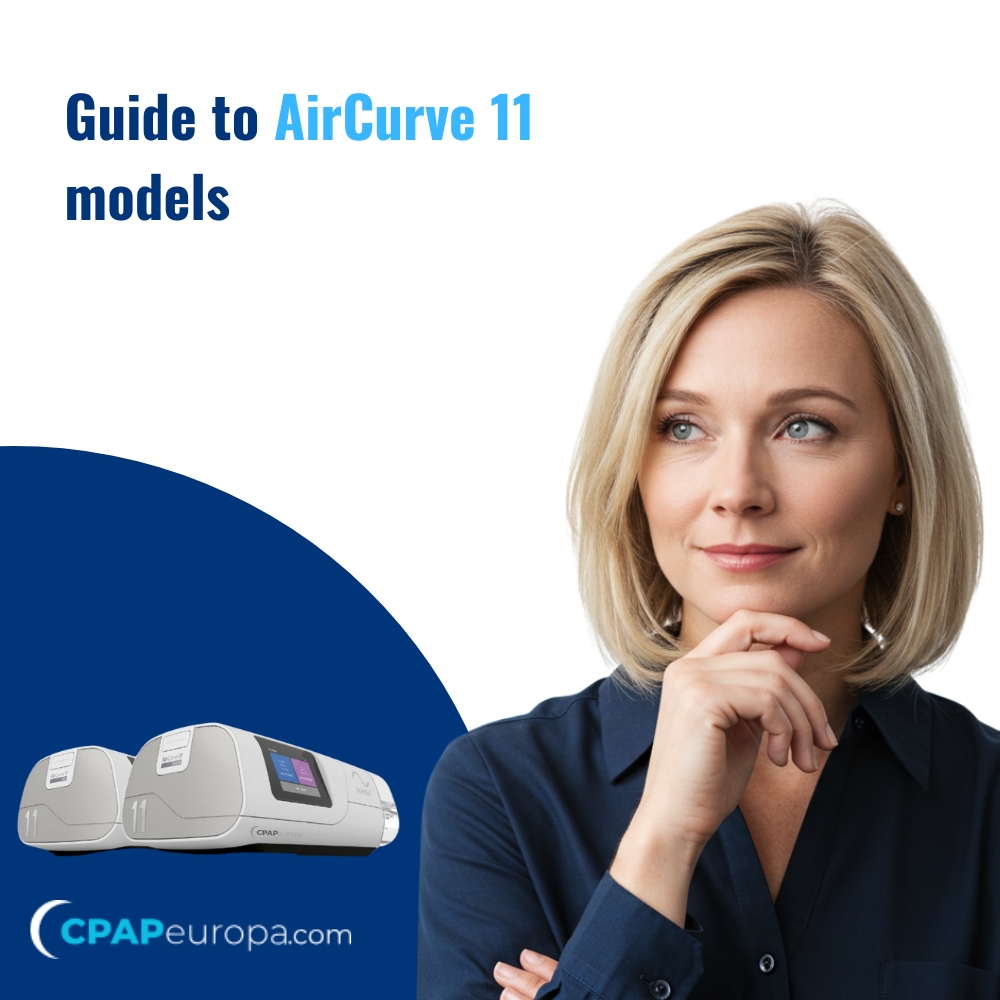
A Guide on ResMed AirCurve 11 BiPAP models: S vs. VAuto vs. ASV
Welcome to CPAPeuropa.com! If your doctor has prescribed a ResMed AirCurve 11 BiLevel device, you’re looking at some of the most advanced technology available for sleep apnea therapy. But with different models like the AirCurve 11 S, AirCurve 11 VAuto, and AirCurve 11 ASV, it’s important to understand their specific functions to ensure you get the device that perfectly matches your prescription and needs. This guide will help clarify the differences.
What is BiLevel Therapy and the AirCurve 11 Series?
Unlike standard CPAP machines that deliver a single continuous pressure, BiLevel (often called BiPAP) machines deliver two distinct pressure levels:
- IPAP (Inspiratory Positive Airway Pressure): A higher pressure when you inhale.
- EPAP (Expiratory Positive Airway Pressure): A lower pressure when you exhale.
This dual-pressure system can make breathing feel more comfortable and natural, especially for users requiring higher pressures or those with specific respiratory conditions. The AirCurve 11 series builds on ResMed’s legacy with enhanced digital health features, user-friendly design, and sophisticated therapy algorithms.
Let’s Compare the AirCurve 11 Models:
1. ResMed AirCurve 11 S (BiLevel Device)
- Product Link: ResMed AirCurve 11 S
- How it Works: The AirCurve 11 S operates in a Spontaneous (S) mode. This means the device senses your natural breathing rhythm. It delivers the higher IPAP when you begin to inhale and switches to the lower EPAP when you start to exhale. All breaths are triggered by your own effort. The IPAP and EPAP levels are fixed according to your prescription.
- Who is it For?
- Patients who can reliably initiate every breath but find it difficult to exhale against the high, constant pressure of a standard CPAP machine.
- Individuals requiring higher overall pressure settings for their Obstructive Sleep Apnea (OSA) where BiLevel therapy offers greater comfort.
- Some patients with conditions like certain forms of COPD or neuromuscular disorders who need pressure support but have a consistent respiratory drive.
- Key Differentiating Features:
- Delivers fixed IPAP and EPAP pressures.
- Relies entirely on the patient’s spontaneous breathing effort to cycle between pressures.
- Ideal for providing comfortable BiLevel support when a backup breath rate is not required.
2. ResMed AirCurve 11 VAuto (BiLevel Device)
- Product Link: ResMed AirCurve 11 VAuto
- How it Works: The AirCurve 11 VAuto is an auto-adjusting BiLevel device. It utilizes ResMed’s proven AutoSet™ algorithm. It automatically adjusts the Expiratory Positive Airway Pressure (EPAP) to keep your airway open. It then provides a consistent level of Pressure Support (the difference between IPAP and EPAP) or can automatically adjust IPAP to meet your needs based on the algorithm. It also features Vsync technology to manage leaks effectively.
- Who is it For?
- Patients with Obstructive Sleep Apnea (OSA) who benefit from BiLevel therapy and require or prefer automatic pressure adjustments throughout the night.
- Individuals whose pressure needs may vary (e.g., due to sleep stage, body position, or mask leak).
- Those seeking the comfort of BiLevel therapy combined with the intelligent titration of an auto-adjusting device.
- Key Differentiating Features:
- Auto-adjusting EPAP and IPAP (VAuto mode): Responds to apneas, hypopneas, and flow limitations.
- Fixed Pressure Support option: Can maintain a consistent difference between IPAP and EPAP if needed.
- Vsync leak management: Synchronizes with patient breathing even with significant mask leak.
3. ResMed AirCurve 11 ASV (PaceWave™ BiLevel Device)
- Product Link: ResMed AirCurve 11 ASV PaceWave
- How it Works: The AirCurve 11 ASV is the most sophisticated device in this lineup, utilizing ResMed’s Adaptive Servo-Ventilation (ASV) with PaceWave™ technology. It continuously monitors your breathing on a breath-by-breath basis. It targets your recent minute ventilation (the amount of air you breathe in a minute) and automatically adjusts pressure support to stabilize your breathing and maintain this target. If you stop breathing or your breathing becomes too shallow, it provides precisely calculated pressure support to normalize your breathing pattern. It can also provide a backup breath rate.
- Who is it For?
- Specifically designed for more complex sleep-disordered breathing conditions such as:
- Central Sleep Apnea (CSA), including treatment-emergent CSA or CSA related to certain medications.
- Complex Sleep Apnea (CompSA) – where central apneas emerge or persist after OSA is treated with CPAP or standard BiLevel.
- Periodic breathing patterns like Cheyne-Stokes Respiration (CSR), often associated with congestive heart failure or stroke.
- Opioid-induced central apneas (under medical supervision).
- Specifically designed for more complex sleep-disordered breathing conditions such as:
- Key Differentiating Features:
- PaceWave™ ASV Algorithm: Intelligently adapts to the patient’s changing needs throughout the night to stabilize ventilation.
- Treats Complex Breathing Patterns: Specifically engineered for conditions beyond standard OSA.
- Highly Responsive: Provides rapid adjustments to pressure support.
- Mandatory Backup Rate: Ensures breathing support even if the patient’s own respiratory effort diminishes significantly.
Shared Features Across the AirCurve 11 Platform:
All AirCurve 11 models benefit from ResMed’s latest platform advancements, including:
- myAir™ App Integration: Access to daily sleep scores, coaching, and educational resources.
- Personal Therapy Assistant: Provides voice-guided setup and troubleshooting through the myAir app.
- Care Check-In: Allows users to answer simple questions that can be shared with their healthcare provider.
- Integrated Heated Humidifier: ClimateLineAir™ heated tube compatibility for optimal temperature and humidity control.
- Quiet Easy-Breathe Motor: Ensures a peaceful sleeping environment.
- Intuitive Touchscreen: Easy-to-navigate menus and settings.
- Over-the-Air Software Updates: Keeps your device up-to-date with the latest features and improvements (where available and supported).
Making the Right Choice – The Importance of Your Prescription:
 The most critical factor in selecting an AirCurve 11 BiLevel device is your doctor’s prescription. Your sleep specialist will diagnose your specific condition and prescribe the appropriate mode (S, VAuto, or ASV) and pressure settings.
The most critical factor in selecting an AirCurve 11 BiLevel device is your doctor’s prescription. Your sleep specialist will diagnose your specific condition and prescribe the appropriate mode (S, VAuto, or ASV) and pressure settings.
- If your prescription is for BiLevel S, the AirCurve 11 S is your device.
- If your prescription indicates a need for auto-adjusting BiLevel for OSA, the AirCurve 11 VAuto is likely the appropriate choice.
- If you have been diagnosed with Central Sleep Apnea, Complex Sleep Apnea, or Cheyne-Stokes Respiration, your doctor will almost certainly prescribe an ASV device like the AirCurve 11 ASV.
Need Further Assistance?
At CPAPeuropa.com, we are dedicated to ensuring you get the right therapy equipment. If you have your prescription and are still unsure which AirCurve 11 model is the best fit, or if you have any questions about their features:
- Consult the detailed product pages linked above for comprehensive specifications.
- Contact our expert customer support team. We are here to help you understand your options and make an informed decision based on your prescription.
Explore the advanced ResMed AirCurve 11 BiLevel devices on CPAPeuropa.com and take a significant step towards better, more comfortable sleep!
